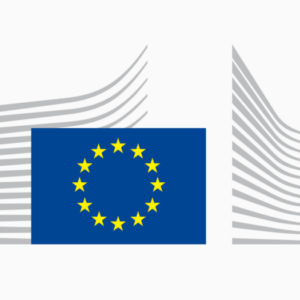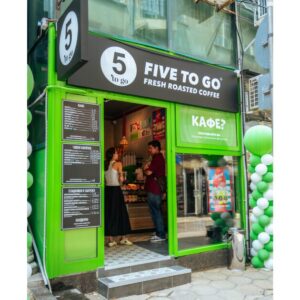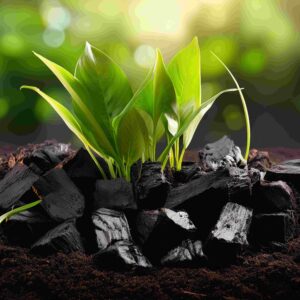Transparency and Traceability: Improving Technologies Benefit the Entire Supply Chain

New technologies are improving transparency and traceability throughout the entire coffee supply chain, thereby enhancing sustainability efforts, elevating credibility, and strengthening the connection between producers and consumers. By Vladislav Vorotnikov.
The concept of coffee chain traceability has undergone a remarkable transition over the past decade, as new technologies allow customers to trace the way of coffee beans from farm to cup with a few clicks of their smartphone. Advanced technological solutions, however, are costly and diverse and have yet to solve all existing problems. In recent years, the coffee industry has made significant strides in enhancing traceability, with several ambitious projects launched by leading players.
For instance, in 2022, Olam Food Ingredients (OFI) announced it partnered with Melitta Europa GmbH & Co KG – Coffee Division to make the coffee supply chain more transparent.
Combining the capabilities of blockchain with other digital tools, the partners make the coffee path from farm to roaster traceable. As a part of the system, the final consumer can scan a QR code on the back of a Melitta specialty coffee bag, which directs them to the unique story of the farmer and the processing method behind their coffee.
Not only individual companies but also national coffee associations are determined to improve transparency of the value chain, as indicated by Britta Mattern, communications manager of the German Coffee Association.
To a large extent, the European Union Deforestation Regulation, or EUDR, has become the key driver of innovation in the coffee chain traceability during the past few years. The EUDR is a key driver of innovation in the coffee chain traceability. Under this regulation, businesses importing products considered ‘main drivers for deforestation’ – including coffee – to the EU are required to produce a due diligence statement that imports have not contributed to forest degradation anywhere in the world after 31 December 2020. The new rules are slated to come into force from 30 December 2025 for large companies and 30 June 2026 for micro and small firms, significantly changing the landscape of the coffee industry.
To prepare for the change, the German Coffee Association recently kicked off EUDR Coffee Check, a platform designed to help German coffee companies verify their business complies with the new rules and regulations and generally meets the upcoming sustainability requirements, Mattern noted. The tool also offers an automated assessment of human rights and governance risks using internationally recognised datasets by the International Labour Organization. “We offer information, tools and services for our members, most free of charge,” Mattern shared.
Oritain, a New Zealand forensic origin-tracer, has recently seen its order book in the coffee segment expanding, which is also partly attributed to looming EUDR regulation, a company spokesperson commented. “Oritain supports several partners across the coffee industry in enhancing their traceability practices through the adoption and integration of forensic origin testing,” the spokesperson said. “From farmers to brands, we have seen many operators look to improve traceability and transparency within their coffee supply chain across the past three to four years.”
According to Oritain, the catalyst for many of these partnerships was internal ESG (Environment, Social, Governance) goals or supporting provenance as a robust differential against the coffee futures price. “However, as the market faces an increasingly strict regulatory environment, led by the EUDR, the needs of ourpartners are changing, and many are now focused on how they can leverage forensic traceability to ensure their own compliance and that of their customers,” the spokesperson added.
From a regulatory perspective, the EUDR, under which coffee is due to be regulated, requires ‘plot level traceability’. This means that businesses must be able to verify that the coffee they source comes from a very specific plot of land, sometimes only a few hectares in size.
“It is rare that we see the origin of a commodity regulated to such a high resolution and given the size and complexity of the coffee supply chain, this presents a huge challenge for many of our partners, but one they are managing to overcome through the intelligent use of forensic traceability and digital tools,” added Oritain’s spokesperson.
Era of Blockchain
With a shared goal of enhancing coffee supply chain traceability, numerous companies are turning to blockchain technology. Blockchain technology is a decentralised ledger that securely records transactions and interactions across multiple parties. It operates on a distributed network, eliminating the need for intermediaries and providing transparency, immutability, and security. Each transaction, or block, is validated by multiple participants and added to the chain, creating a permanent and auditable record.
“Several blockchain technologies offer transparency in the coffee supply chain, each with different strengths,” commented Andry Alamsyah, a professor from Telkom University in Indonesia, whose team recently developed a blockchain-based technology for the local coffee industry.
In general, most of the existing blockchain traceability technologies are based on public chains, the most popular of which are Ethereum and Polygon, and permissioned blockchains like Hyperledger. A blockchain environment is called public if anyone can freely join its network as a node. Otherwise, if only authenticated nodes are allowed to become part of the network, the blockchain is called permissioned.
The key issues when choosing blockchain technology for the job are scalability, cost efficiency, security, decentralisation, and interoperability. For instance, he noted that Ethereum has relatively high gas fees and that Hyperledger requires enterprise investment. In contrast, Polygon offers the lowest transaction fees, ranging between USD $0.0005 and $0.2, making it ideal for frequent updates. Public chains, like Ethereum and Polygon, offer better transparency than permissioned blockchains like Hyperledger.
“We chose Polygon [for our traceability system] because it balances scalability, cost, security, and decentralisation, making it the best fit for our traceability solution,” Alamsyah noted.
Blockchain is revolutionising traceability within the coffee industry, as indicated by TD Supriya, business development manager at India-based TraceX, which recently introduced TraceX Food Traceability Platform, a solution that helps businesses in the coffee industry achieve end-to end supply chain visibility, regulatory compliance, and sustainability assurance.
“For example, a coffee retailer in France sells single-origin Ethiopian coffee. With blockchain tracking, consumers can scan a QR code to see the exact farm location where the beans were grown, the date of harvest with processing details, and certifications for Fair Trade, Organic, or RSPO compliance,” Supriya explained.
“Regarding the challenges of blockchain adoption in the coffee industry, the real issue is shifting from a conventional business model to one that’s blockchain-enabled,” Alamsyah commented. “Most stakeholders, especially at the farming and processing levels, are used to traditional, paper based systems or centralised databases. Getting them to adopt blockchain means more than just introducing new tech; it requires a mindset shift around data sharing, ownership, and process verification,” he added.
Record-keeping challenges
Many small coffee farmers still use paper-based record-keeping or, in some cases, no records at all. This makes verifying sourcing details, payments, and farming practices difficult.
Trace X also sees a lack of digital records, especially at the farming level, as the key challenge for improving traceability along the value chain, including using blockchain technologies. Besides, Supriya continued, the path for coffee from the field to the cup can be intricate, as the supply chain can involve many middlemen, plus there are different blending practices.
“Coffee is often mixed and processed in bulk, making it harder to trace specific batches. Even if a farm follows ethical and sustainable practices, their beans might be blended with non-compliant batches before reaching consumers,” Supriya noted.
According to Alamsyah, the key to making traceability work is designing a system that integrates smoothly into existing workflows without adding too much complexity. “Governance, user incentives, and ease of use are critical – otherwise, adoption becomes a major hurdle. Smart contracts and decentralised identities help automate parts of the process, but balancing scalability and cost-effectiveness is always a challenge,” he added.
Climate change also makes ensuring coffee traceability more difficult. According to the Oritain spokesperson, as our planet warms, it is impacting the suitable growing environments for commodities such as coffee. “What we see this manifesting as, from a traceability perspective, is a degree of unpredictability in sourcing origin as a farm or co-operative you sourced from one year may have to shift production in years following.”
“This means it’s even more critical to take an active approach to traceability than what we see from commodities grown in more stable, more predictable climates. Forensically proving origin provides confidence to our partners and their customers that their products are true to origin,” the spokesperson added.
Despite the challenges, market players believe implementing transparency and traceability technologies is worth the effort. According to Supriya, blockchain is only one tool the coffee industry can use to improve transparency. Complemented with the power of artificial intelligence (AI) and satellite mapping, the industry can get pretty close to ensuring almost 100 percent transparency in the supply chain- an achievement believed to be impossible only a few years back. She added, for example, that satellite powered risk assessments flag high-risk suppliers before they enter the supply chain.
The future of blockchain in coffee supply chains is promising. As the technology advances and becomes more scalable, its potential impact will only grow. Integration with other emerging technologies, such as the Internet of Things and AI, can amplify its benefits and enable even greater traceability and efficiency.
“If companies and farmers embrace digital tracking and transparency tools, the industry can get closer to full traceability than ever before,” Supriya noted.
For coffee companies, the benefits of improving traceability are hard to overestimate, Supriya said. In a world where consumers increasingly seek sustainable solutions, better traceability helps build consumer trust and brand loyalty. Research has shown that when consumers can verify sourcing transparency, they are more likely to support ethical brands. Furthermore, said Supriya, traceability increases credibility for coffee exporters and producers who follow sustainability standards.
Vladislav Vorotnikov is a Batumi, Georgia-based multimedia B2B freelance journalist writing about the tea and coffee industries since 2012.






